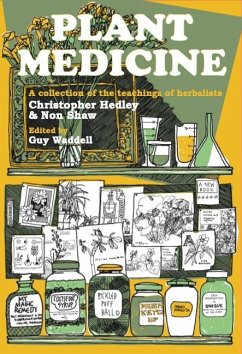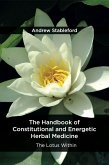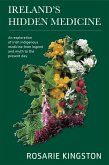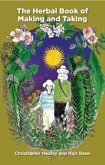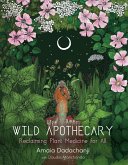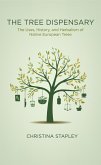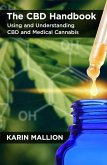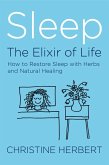A comprehensive compendium on the theory and practice of herbal medicine from expert herbalists Christopher Hedley and Non Shaw.
This fundamental textbook draws on the wisdom of Christopher Hedley and Non Shaw, incorporating their belief in the importance of understanding herbal medicine in the context of living plants, and providing lived examples of how this can be used in the everyday practice of herbal medicine. Through these teachings, the book also acquaints readers with the rich legacy of Christopher and Non in Western herbal medicine.
Drawing on Christopher's own approach to teaching herbalism, which was abundant with the importance of storytelling in learning, Plant Medicine is as fascinating as it is accessible, enriched with the depth of Christopher's own knowledge and warmth.
The book is comprised of four parts:
'Roots' explores the history of plant medicine, investigating physiomedicalism and Galenic humoral medicine.
The second section, 'Flowers', is a thorough, alphabetically ordered materia medica of the medicinal properties of individual plants, with properties, uses, preparations, dosage, cautions, and clinical uses of ninety-two plant medicines that Non and Christopher gathered over nearly two lifetimes.
'Fruits' provides information on how particular body systems and patient groups are treated therapeutically with herbal medicines, specifically covering the digestive, cardiovascular, nervous, urinary, musculoskeletal, endocrine, skin and immune systems.
Finally, 'Seeds' concludes the book by inviting readers to consider going deeper and beyond their exploration of plant medicine, shifting their preconceptions of herbs to understand them on a more intimate level.
Plant Medicine is a foundational text for all students and practitioners of herbal medicine, but it's wisdom and insight will also provide a guiding light for anyone seeking plant medicine as a way to reconnect to the abundance and beauty of nature.
This fundamental textbook draws on the wisdom of Christopher Hedley and Non Shaw, incorporating their belief in the importance of understanding herbal medicine in the context of living plants, and providing lived examples of how this can be used in the everyday practice of herbal medicine. Through these teachings, the book also acquaints readers with the rich legacy of Christopher and Non in Western herbal medicine.
Drawing on Christopher's own approach to teaching herbalism, which was abundant with the importance of storytelling in learning, Plant Medicine is as fascinating as it is accessible, enriched with the depth of Christopher's own knowledge and warmth.
The book is comprised of four parts:
'Roots' explores the history of plant medicine, investigating physiomedicalism and Galenic humoral medicine.
The second section, 'Flowers', is a thorough, alphabetically ordered materia medica of the medicinal properties of individual plants, with properties, uses, preparations, dosage, cautions, and clinical uses of ninety-two plant medicines that Non and Christopher gathered over nearly two lifetimes.
'Fruits' provides information on how particular body systems and patient groups are treated therapeutically with herbal medicines, specifically covering the digestive, cardiovascular, nervous, urinary, musculoskeletal, endocrine, skin and immune systems.
Finally, 'Seeds' concludes the book by inviting readers to consider going deeper and beyond their exploration of plant medicine, shifting their preconceptions of herbs to understand them on a more intimate level.
Plant Medicine is a foundational text for all students and practitioners of herbal medicine, but it's wisdom and insight will also provide a guiding light for anyone seeking plant medicine as a way to reconnect to the abundance and beauty of nature.
Dieser Download kann aus rechtlichen Gründen nur mit Rechnungsadresse in A, D ausgeliefert werden.

